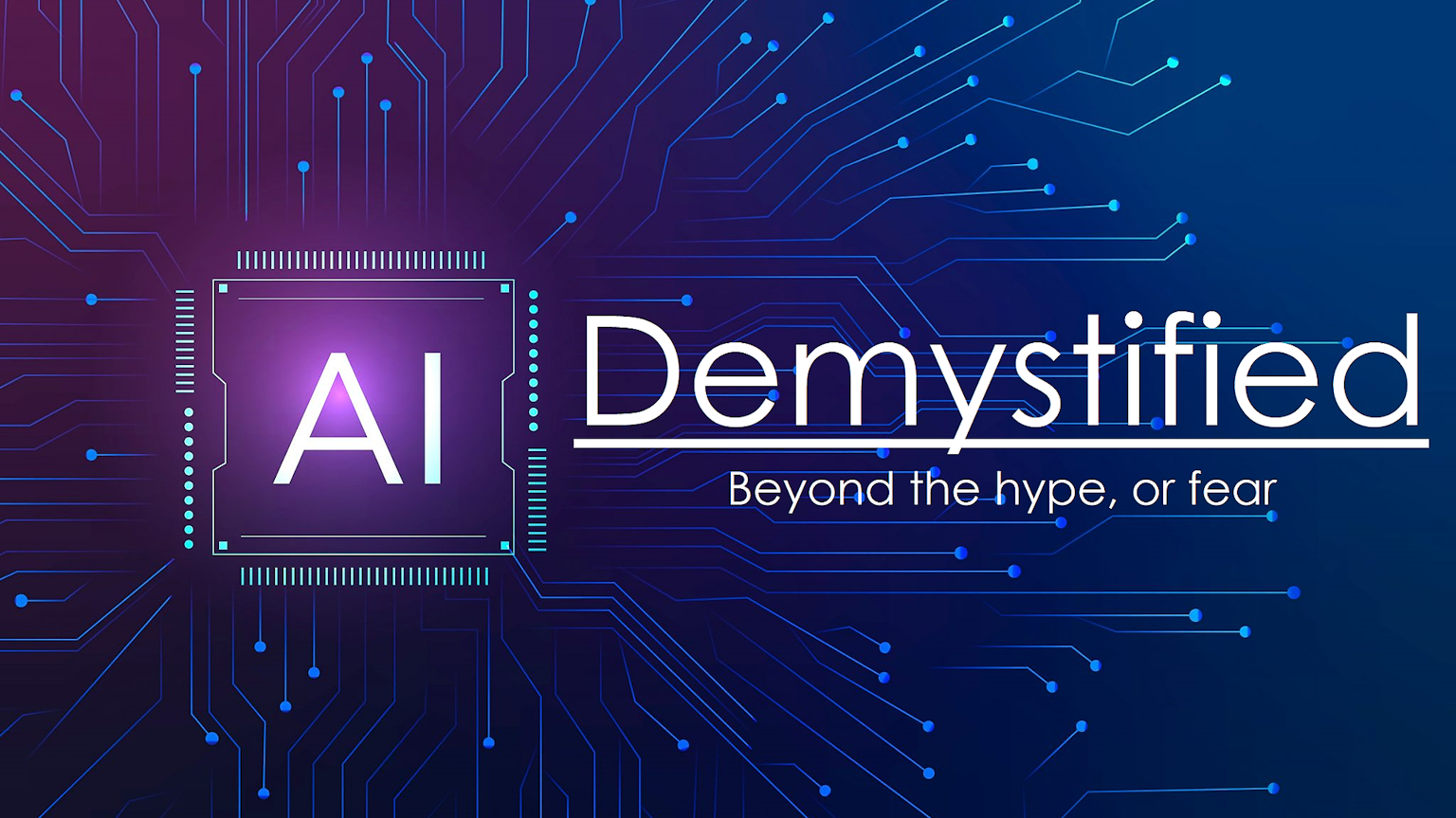AI Demystified - From concepts to strategy
3 Days
·Cohort-based Course
Learn the language of AI - from concepts to real-world applications. Understand the fundamentals and learn how to develop AI strategy
AI Demystified - From concepts to strategy
3 Days
·Cohort-based Course
Learn the language of AI - from concepts to real-world applications. Understand the fundamentals and learn how to develop AI strategy
Course overview
Go beyond the hype or fear of AI
The goal of the course is to demystify AI for leaders, non-technical professionals, or technical folks who want to pivot into AI. By the end of this course, students will have gained confidence in discussing AI-related concepts and applications with technical and non-technical stakeholders. They will be able to think strategically about AI, ask informed questions and lead AI-related discussions within their organization.
Students will gain a solid understanding of the key concepts and terminology of AI. They will learn how AI models are developed and what are important considerations when developing AI. The later part of the course will discuss how to develop AI strategy for your organization.
The course will not go deep into technology but will mention few important ones. The hands-on workshop will be planned during the session by use-cases selected by the participants.
Who is this course for
01
This course is targeted to business and technical leaders or technical folks who would like to pivot their career to AI
02
C-suite leaders, senior managers, and directors who want to understand the basics of AI and how to apply in their organization
03
Non-technical professionals who want to understand all about AI in simple terms and learn how it can be applied in their field of work
04
Entrepreneurs and start-up founders who want to learn how to leverage AI to build innovative new businesses or enhance existing ones
What you’ll get out of this course
Fundamentals of AI
What is artificial intelligence (AI), it's history and how it is changing the world: What are the most common terms used in AI. What's the difference between AI (artificial intelligence), ML (machine learning) and DL (deep learning) and how they related to each other.
Developing AI models
What are different types of AI and how do they learn? How do you go about developing AI models? What are important elements that can impact the outcome of your AI model?
When to use a base model, retrain a model or fine-tune a model? What are the associated risks?
AI Adoption and Transformation
How can AI be applied to business domains, like sales and marketing, customer service, supply chain, and other line-of-businesses. How to develop AI transformation strategy? Why ethics and governance are critical components to a successful AI transformation strategy
What’s included

Live sessions
Learn directly from Rajeev Nanda in a real-time, interactive format.
Lifetime access
Go back to course content and recordings whenever you need to.
Community of peers
Stay accountable and share insights with like-minded professionals.
Certificate of completion
Share your new skills with your employer or on LinkedIn.
Maven Guarantee
This course is backed by the Maven Guarantee. Students are eligible for a full refund up until the halfway point of the course.
Course syllabus
Week 1
Apr
8
Session 1 - AI Demystified
Apr
9
Session 2 - AI Demystified
Week 2
Apr
12
Session 3 - AI Demystified
Technologist. Thought leader. Published author
Rajeev Nanda
Rajeev Nanda
Accomplished and results-oriented leader with a breadth of experience in multifarious leadership roles. Worked across entire software stack with hands on experience. Created, matured and managed cross-functional and cross-geo organizations to deliver line-of-business solutions and AI models. Worked with executive level staff on strategic programs. Experienced in Digital Transformation, Agile Transformation, Innovation Harvesting and Organizational Transformation.
Well versed with various development methodologies, including Agile/SCRUM, and program lifecycle cycle processes. Published author of books and articles on technology, strategy, management, and leadership topics including AI, IoT, Cloud Computing and innovation. More on https://rnanda.com
Be the first to know about upcoming cohorts
AI Demystified - From concepts to strategy
AI Demystified: Go beyond the hype and the fear
Since the launch of ChatGPT by OpenAI, the tech industry is abuzz with hyperboles of AI taking over the humanity. Going by the narrative it seems that all creators, coders, accountants, researchers, therapists, teachers, decision makers and (...) will be replaced by AI. Unicorn startups will only need the founders and the rest will be taken care of by AI.
The truth will be somewhere between the hype and the fear. This course explains the concepts of AI, how AI models are created and how you can use AI to your competitive advantage in business or career
Join the next cohort
Cohorts or intact session (Your choice)
Open cohorts
Best for peer-learning that cuts across demographics and location. Join a cohort and invite your friends to increase learning
Intact cohorts
Best for closed group learning. A minimum of 10 and a maximum of 12 participants to maximize learning and use-case workshop experience
Stay in the loop
Sign up to be the first to know about course updates.
Be the first to know about upcoming cohorts
AI Demystified - From concepts to strategy
Intact Sessions Only
One full day, or two half-days
Session timings
Intact session will be tailored to each group
